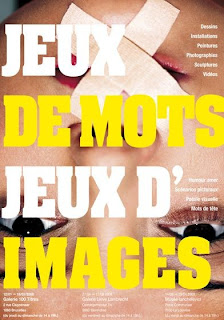(Here's a text I was asked to write for an in-house school publication. I'm posting it for the one or two people who might be reading the Blog who knew me back then and will recognise something of what I'm talking about.
File under: 70s Nostalgia.)***
I went to a strange old boarding school in London right among England’s centres of power and privilege. We ate our breakfast off tables whose timbers had come from the Spanish Armada. For morning assemblies we sat in the pews of Westminster Abbey. Walking to and from classes you would see government heads in limousines gliding by in the streets.
It was a school with its own peculiar traditions and slang. A new boy was a “fag”. Informal wear after four o’clock was called “shag”. The First Eleven football team took to the pitch wearing bright pink shirts. (We usually lost).
Not surprisingly, the Master’s Common Room boasted similar eccentricities. There was a Physics teacher (later murdered) who broke into his phrases to observe passing aircraft or emergency vehicles:
“Yes, an an-(pause)-an-(pause)-(pause)-ometer, boy”. The Classics master reputedly placed sticky tape over mains sockets to prevent electricity from leaking out. One of my English teachers would on occasions read a poem, sigh, and – overcome - walk abruptly out of the room. Stranger still, we all thought that this was perfectly normal behaviour.
However, it would be a little too obvious for me to single out one of my English teachers. My debt to them goes without saying. Instead, I will write about my German teacher – Mr. Stokes.
Herr Stokes (
“Schtock-us” we would say in heavily parodic German accents) looked like a disheveled Vitus Gerulaitis. He wore the same blue-grey corduroy jacket every day. His unironed shirt was usually missing buttons, its cuffs protruding. School rules prescribed a tie which he wore with evident disdain, yanked into a tiny knot and flying at half mast. His hair seemed never to have been brushed other than by his hands which went through the unruly curls as though looking for an idea. Yet it was his voice which captured you – soft and cultivated and charming. I remember the care with which he shaped his vowels – that umlaut “u” sound.
As a matter of principle, Herr Stokes was never on time. He would burst into the cramped language lab a good ten minutes late, papers cascading from his arms, a snatch of Schubert lieder on his lips. Then there would be a blizzard of words on the board, a little warm-up to get things going. One word led to ten then twenty linked by some etymological association evident to him but lost on most of us.
I don’t think Herr Stokes had ever heard of a syllabus. And if he had it wasn’t going to strait-jacket his teaching. The assumption was that if his students were passionate about their subject then the exam would take care of itself.
Thus our classes ranged widely. I can remember listening to President Kennedy’s famous gaffe anouncing that he was “ein Berliner”, Marlene Dietrich complaining that all the “bluhmen” had gone, Fischer-Dieskau singing ‘Der Erlkonig’. It didn’t seem to occur to him that sixteen year-olds might not appreciate such a rarefied diet – as far as he was concerned these were things you simply ought to know. Why wouldn’t you like them? In the days before VHS let alone DVD, he sent his classes to obscure art cinemas across London to see films by key German directors (original versions, of course). I recall sitting through Herzog’s ‘Woyzeck’ and not understanding a word. For him that didn’t matter. The point was to expand your horizons. And he was right.
Sadly, I didn’t get it at the time. I wasn’t ‘good’ at German – and this in a school where ‘good’ was merely average. My ‘preps’ were grammatical catastrophes. For me,
every word in German was in the accusative. I couldn’t even grasp the basics.
So it was inevitable that, one wintry morning, I rang the doorbell of Herr Stokes’ flat. In his study an aria was playing on the gramophone – a Strauss Last Song? Sheepishly, I explained that I wanted to give up German.
“Warum?” I made some half-baked excuse. The truth was – which I hadn’t the courage to tell him – that I had discovered my favourite English teachers’ classes were timetabled against German. I remember Herr Stokes’ pained expression. I had expected him to be pleased – rid, finally, of this hopeless student. Instead, he seemed genuinely upset. He spoke eloquently of how I would regret the decision, of Goethe, and Heine, and Kafka and Celan. All that their words promised and that I would be renouncing.
*
There was a red sun low over the Thames as I walked back to my room. In retrospect it was probably for the best. I gather Herr Stokes has continued teaching. He has established himself as a distinguished translator of Alfred Brendel’s essays. And I suspect that he was a decisive influence upon the English tenor Ian Bostridge’s career.
So why do I choose to write about Herr Stokes? Not so much for
what he taught me as
how he taught me; not the grammar of a language but an expression of living. In a word:
enthusiasm which derives from the Greek meaning ‘to be possessed by a god’.
It is a lesson that has stayed with me.
(March 2009)























